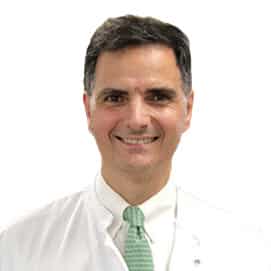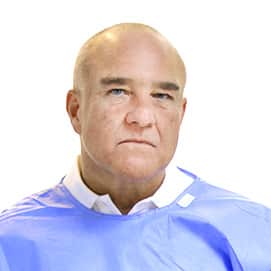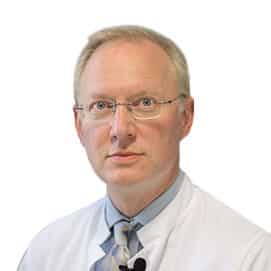The causes of thyroid cancer are still not clearly understood. But there are certain factors that increase the risk of the disease.
genetic predisposition
And in thyroid cancer, there are tumor forms that depend on hereditary predisposition. These include, first of all, the rare medullary thyroid carcinoma (MTC). Approximately in 30% of this form of tumor, a specific change in genes is tracked, which can be transmitted within the family by heredity. These cases are also referred to as familial medullary thyroid carcinoma. But still, the majority of patients with medullary carcinoma do not have a hereditary predisposition.
In familial medullary thyroid carcinoma, there is often a so-called MEN 2 syndrome (MEN = multiple endocrine neoplasia). This is a disease that can lead not only to the development of thyroid carcinoma, but most often benign tumors of the adrenal medulla (pheochromocytoma) and parathyroid glands.
Iodine deficiency, increased thyroid-stimulating hormone (TSH)
Patients suffering from thyroid goiter due to iodine deficiency are also at risk of developing thyroid cancer. In this case, we are mainly talking about a special variant of thyroid cancer, the so-called follicular carcinoma. New research has shown that an increase in thyroid-stimulating hormone (TSH) associated with iodine deficiency is associated with an increased risk of developing carcinoma.
Radiation
The next risk group is people who received x-rays on the neck in childhood or adolescence. Such therapy in the 40s and 50s was very popular in Scandinavia and the USA, but in Germany it was rarely used for benign diseases.
Also, people whose thyroid gland has been exposed to increased radiation exposure from radioactive iodine, for example, after a nuclear reactor disaster, have an increased risk of developing thyroid cancer. In this case, the risk of cancer increases with the dose of radiation received by the victim. Before the onset of thyroid carcinoma, an average of 5 to 15 years passes. In adults, this time is longer than in children, who have a significantly higher risk of the disease compared to adults. In children, the incidence after irradiation is increased by 25 times, the disease can occur many decades after irradiation.
In contrast, patients treated with radioactive iodine for medical reasons (eg, to treat an overactive thyroid gland) do not have an increased risk of developing thyroid carcinoma because the thyroid gland is usually destroyed by this therapy.
Head of the Clinic of Oncology, Hematology and Palliative Medicine
Head of the Clinic for General, Visceral, Thoracic and Endocrine Surgery
Head of the Clinic for Radiation Therapy and Radiological Oncology
Video
Request appointment
Useful links
Photo gallery












